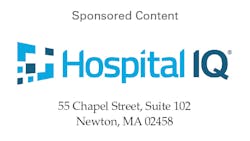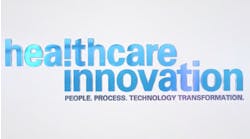Like many other hospitals, one large hospital customer of Hospital IQ regularly confronted a recurring nurse staffing challenge: how to allocate the right number of nurses to the right unit to meet actual patient census demand amidst high turnover. This internal issue was exacerbated by a regional nursing shortage. Units became understandably protective of their staff, which made optimizing resources across the organization especially challenging.
In addition, inefficient and time-consuming manual administrative processes often left managers at this organization with no clear, complete picture of staffing needs and available resources across the organization, particularly in the hospital’s nine acute care medical-surgical and telemetry units. Nursing unit managers would make last-minute estimates of their demand on a daily basis using limited information. The staffing office would then scramble to allocate staff based on these estimates, which often meant asking nurses to work longer shifts, work on their scheduled days off, and work outside of their regular units.
Consequently, staffing managers and unit directors spent too much time addressing immediate staffing needs, taking them away from caring for patients and leaving them little time for proactive staff planning, making the workplace more chaotic and intensifying staff burnout and turnover, while the frequent use of shift-based incentive and overtime pay drove up labor costs.
Hospital IQ’s Workforce solution
To streamline and automate its processes and make more proactive and better-informed decisions about how to allocate nursing resources, this hospital needed a clearer, real-time, holistic picture of its staffing needs. Because they had already adopted Hospital IQ’s Patient Flow and Perioperative solutions with great success, the patient care organization decided to deploy Hospital IQ’s Workforce solution across its nine Med-Surg and Telemetry units.
Within six months, Hospital IQ’s Workforce solution enabled hospital leaders to better utilize nursing staff and reduce the need for premium pay. Hospital IQ has enabled the provider organization’s managers to proactively coordinate staffing needs across the hospital’s nine acute-care units, up to seven days in advance. The platform identifies which units will be understaffed or overstaffed, and uses predictive analytics to accurately forecast unit census, helping managers better allocate the nursing staff several days before they are needed. By helping both staffing managers and unit managers predict future needs across the organization, Hospital IQ has improved collaboration among units and enabled them to more easily share core staff and deploy the float staff. This hospital can now identify staff who can be reallocated to other units to fill shortages days in advance, reducing the hospital’s reliance on last-minute premium pay (e.g. shift-based incentive pay and overtime pay).
To date, the hospital has reduced shift-based incentive pay costs by more than 70% and overtime spending by more than 20% across its acute care units. It has automated staffing processes to meet patient demand and reduce the need for last-minute adjustments. Daily allocation of the nursing staff was an arduous task. To assign nurses across the units to accommodate patient demand, staffing managers met three times a day with charge nurses and unit directors across the hospital and reviewed staffing books to learn each unit’s needs. And, as the day progressed and the patient census changed (increase in some units, decrease in others), they adjusted accordingly. This daily process required tremendous time and energy, and the effort to ensure appropriate staff across their units consumed much of the managers’ workday.
Hospital IQ has provided this customer with accurate multi-day unit-level forecasts and built-in workflows that streamline and improve how the nursing units communicate and coordinate their daily staffing needs. The daily scheduling routine now takes less than a half hour. Additionally, Hospital IQ has enabled unit clerks to coordinate the staffing process so that charge nurses and unit directors can devote more of their time to improving patient care.
Overall, Hospital IQ’s workflow automation has saved the Iowa hospital more than 70 hours per week in staff time that was previously devoted to coordinating the daily schedule, freeing the staffing office to devote more time to strategic, proactive longer-term planning and reducing the need for crisis management. Hospital IQ has transformed how the patient care organization allocates and assigns nurses— improving quality of care, enhancing staff satisfaction, reducing turnover, and decreasing labor costs.



